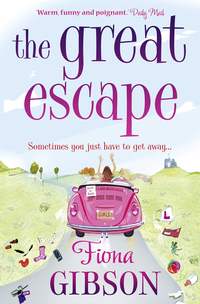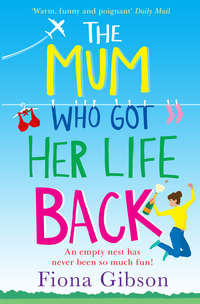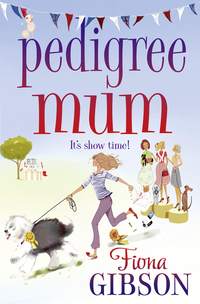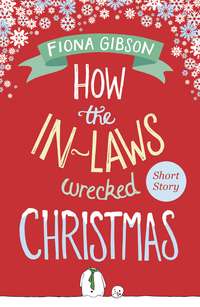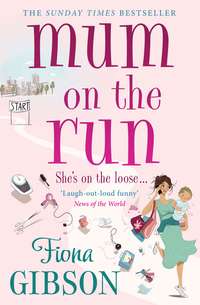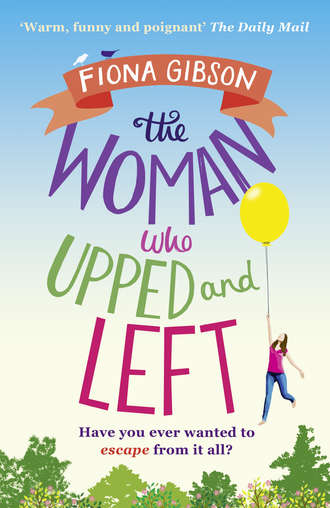
Полная версия
The Woman Who Upped and Left: A laugh-out-loud read that will put a spring in your step!
Laden now with shopping and flowers, I trudge along the cobbled driveway which cuts across Mrs B’s enormous lawn to her stark, gunmetal grey house. It has the air of an approved school, or a former mansion taken over for governmental purposes. Even the beautiful gardens, the herbaceous borders bursting with colour, fail to raise its spirits. Six of the seven bedrooms are never used – apart from when Mrs B’s daughter, Victoria, comes up from London to pay an occasional visit – and the entire upper floor remains chilly and damp, even on a bright summer’s day. ‘The only way I’m leaving here is in a coffin,’ Mrs B retorted, when I gently asked if she ever planned to downsize.
Spotting me, Paul, the gardener, sets down his wheelbarrow and strides across the lawn. ‘God, Aud,’ he exclaims, ‘they’re beautiful. You shouldn’t have.’ I laugh and fill him in on today’s events. ‘That’s amazing,’ he says, sounding genuinely impressed. ‘You should’ve taken the rest of today off, done something special to celebrate.’
‘I couldn’t really, not at such short notice …’
He smiles, rubbing his five o’clock shadow. When I started working here four years ago – my dinner lady earnings weren’t nearly enough, and being a home help and carer seemed preferable to bar work – Julie happened to mention the ‘sexy gardener’ who’d recently transformed Mrs B’s grounds. I had to admit that the dark eyes, the chestnut hair and general rugged, outdoorsiness of him all added up to one pretty appealing package. ‘Doesn’t say much, though,’ she added. It took a few months to learn that Paul’s apparent shyness was, in fact, just a desire to get on with his work. ‘I noticed you swapped with Julie yesterday,’ he adds. ‘I had a box of veg set aside for you, don’t forget to take them today …’
‘That’s so kind of you,’ I say, meaning it: I am eternally grateful for the virtually limitless supply of produce he supplies.
‘So?’ He grins, squinting in the bright sunshine. ‘Impromptu motorway date, was it?’
‘Yep, that’s right.’ I chuckle awkwardly. Hell, what possessed me to tell him about Stevie’s preferred venues for meet-ups? I’d only meant to ask him how long it would take me to get to Lancaster Services and then it had all poured out. And now, he won’t let it go.
‘Lucky lady,’ he teases. ‘So where was it this time?’
‘Charnock Richard.’
Paul barks with laughter. ‘Oh, Aud. He knows how to treat you special. The romantic drone of six lanes of traffic …’
‘You could hardly hear it actually,’ I say, a trace defensively.
‘… The whiff of fuel from the petrol station, the all-you-can-eat breakfast buffet with those coiled-up sausages … how much was it this time?’
‘A fiver,’ I say with a snigger.
‘Bargain …’ He smirks. For some reason, he seems to derive enormous pleasure from hearing about my adventures. I’m not sure if he has the odd dalliance himself; there’s been no evidence of women around, as far as I’ve noticed, apart from his ex-wife, who drops off their daughters for weekends at the cottage behind the main house, which comes with the gardener’s job. I spot Jasmine and Rose from time to time, helping their father to harvest vegetables, or darting like shy woodland creatures between shrubs. At seven and eight, they clearly love their visits to their dad’s.
‘It was actually an early birthday treat,’ I add with a grin.
‘Oh, when’s the big day?’
‘Tomorrow.’ I smile.
‘Not the biggie, is it?’
‘You mean 50?’ I ask, aghast. ‘Thanks a bunch, Paul!’
He laughs. ‘I meant 40 …’
‘Flatterer. I’ll be 44,’ I say with a smirk.
‘Ah, nothing to get too het up about then. C’mon, give me that shopping and I’ll help you in with it …’
‘Thanks,’ I say, and we make for the house where I give the bell two brief rings – just a courtesy really – before stepping in and inhaling the stale, musty air. ‘Hello, Mrs B?’ I call out, propping my bouquet against the wall in the hallway and taking the shopping from Paul. ‘It’s me, Audrey …’ As he heads back out to the garden, I drop off the groceries in the kitchen and make my way to the rather faded, chintzy drawing room to greet her.
‘How are you feeling today?’
‘Just the same,’ she replies tartly, ‘sitting here all on my own.’
‘Oh, hasn’t Paul been in to make you a cup of tea?’
She peers up at me through wire-framed glasses. Like a tiny bird with plumage of fluffy white hair, she is perched in her usual spot: squished up at one end of the enormous brown Chesterfield. The rest of the sofa is heaped with unravelling balls of wool and half-finished embroidery projects. ‘Paul?’ she repeats with a frown.
‘Yes, Paul. I know he pops in every morning …’
‘He makes terrible tea,’ she says crossly. ‘Far too weak. I keep telling him but he won’t listen.’ On her lap, the newspaper is open at the cryptic crossword. Here we go …
‘Well, maybe Julie could stay longer in the mornings? I’m sure we could work out a rota, or perhaps find a new person to do extra—’
‘Never mind that,’ she cuts in, rapping at the paper with her pencil. ‘Help me with this. Seven across, eleven letters …’
‘Oh, you know I’m no good at these, Mrs B.’ As an avoidance tactic I start gathering up the cups and glasses that litter the numerous spindly side tables.
‘“Biblical character jumps ship, perhaps.” Four-five …’
‘Really, I have no idea …’
‘Don’t be so defeatist.’
I pick up a plate bearing the remains of one of those pastries with squashed currants inside. I have to say, Mrs B favours the more dismal end of bakery goods. She is still watching me, waiting for an answer. ‘I know,’ I blurt out. ‘I’ve got it. King somebody …’
‘Pardon?’
‘That king, the one who made the sea go back with his hands … King Canute!’ I smile, feeling pretty confident that I’ve got one right, therefore proving I’m not the halfwit she has me down for.
‘I don’t know how you came up with that,’ she mutters.
‘You know – the sea, jumping ship …’
‘King Canute is four-six … ’
‘Oh yes,’ I say, feeling chastised as I stack all the crockery onto a sticky wooden tea tray. She gnaws at her pencil and mutters an unintelligible answer before setting the newspaper aside with a sigh. I don’t even know why she keeps insisting on pinging incomprehensible clues at me. It’s like expecting a plumber to be capable of performing root canal work.
‘Didn’t anyone ever teach you how to do crosswords?’ she asks, as if I lack a vital skill: like tying shoelaces or telling the time.
‘No one did them in my house,’ I explain. ‘Dad didn’t really have time for that kind of thing, and remember I told you Mum left when I was nine? She went off with Brian Bazalgette who delivered our coal. Huge guy, strong as an ox from lugging those enormous sacks from his truck to—’
‘Oh yes, your mother married the coal man.’ Her pale eyes glint with interest.
‘Well, she’s never married him, but they still live together …’ As far as I know, I add silently. Mum’s communications have been pretty sporadic over the years. She doesn’t have a mobile, or even a landline at her cottage deep in the Welsh valleys. How can you keep in contact with someone who really doesn’t want to be contacted? While I have written to her, sporadically, over the years, Mum is never prompt with a reply, and she doesn’t own a computer. I can count on one hand the times she’s seen Morgan, her only grandchild.
The first time, a few weeks after he was born, she arrived a little dishevelled at our tiny terraced house in York; the journey from Wales had apparently involved numerous changes of bus. Brian didn’t come with her, and all she would say was that ‘it’s not his sort of thing’. What isn’t? I wanted to ask. Meeting your grandchild, getting to know your daughter or accompanying you on a trip? I barely knew Brian. With his coal-dusted face and gruff demeanour, I’d always stayed well out of his way when he delivered our coal, and couldn’t quite see his appeal.
On her visit, I noticed Mum had swapped the nondescript catalogue clothes she used to wear for a raggle-taggle ensemble of washed-out T-shirt, an unravelling cardi and batik-printed trousers that hung loosely on her skinny frame. She brought with her the potent scent of patchouli and woodsmoke, plus a charity shop sweater for Morgan with a penguin appliquéd on the front. When I asked whether Brian was still in the coal business, she replied vaguely, ‘Oh, he’s just doing this and that.’ She seemed terrified of holding Morgan, and even Vince, who’s pretty generous about most people he meets, jokingly remarked that Mum was ‘a bit of an oddball … I can see where you get it from, Aud.’
Subsequent visits have been brief and a little tense. Mum has always been armed with numerous excuses about why I can’t visit her in Wales – ‘We’re doing the place up, it’s good for me to get away’ – and four years have slipped by since I last saw her. I miss her, of course. I especially missed her when Morgan was young, and I wanted to pick up the phone and ask her, ‘Why is he screaming, d’you think? And how d’you wean a baby? I mean, what do they eat? He spits out everything I give him!’ Of course, I couldn’t do that and, over the years, as I found my feet as a mother and needed her less, I began to accept that this was how things were. At least, how she and I operated. I have never understood why she has never wanted to be a proper grandma to Morgan. When he has a child – years from now, obviously – I’ll be muscling right in.
Mrs B tuts. ‘Yes, you did tell me about that. Dreadful situation …’ She presses her thin, pale lips together and shakes the newspaper at me. ‘Anyway, this is an easy one. Even you’ll be able to get this. “Briefly dying caterpillar mocks snow”, nine letters …’
‘Really, it might as well be in Mandarin …’
She emits a withering laugh as I gather up scissors and pin cushions from the sofa. It strikes me that an unhealthy proportion of my life is spent putting things away. It’s not that Mrs B – or I – care about everything being neat and tidy. I just don’t want her impaling herself on an embroidery needle. ‘Did you have the rest of that lentil soup for lunch today?’ I ask.
‘No, I threw it away.’
I blink at her. ‘Really? Was there something wrong with it?’
‘It was very bland.’ She gnaws at the end of her pencil.
‘Oh.’ I clear my throat. ‘I could make carrot and coriander for tomorrow, if you’d prefer that, or maybe mushroom …’
‘Hmm, I’m not sure about that …’
‘Or leek and potato?’
‘Ugh, no.’ She shudders visibly and fills in a clue.
How about tomato and horse testicle? I pause, knowing I’m being played with.
‘Just ask whoever’s coming to bring me some tinned ones tomorrow,’ she mutters. ‘I find they have more taste.’
‘Fine,’ I say, fixing on a bright smile. ‘Look, it’s lovely and sunny outside. Would you like to sit in the garden?’
She nods, and her face softens; Mrs B adores her garden. So I help her outside, taking her arm to guide her – she is a little unsteady on her feet – where she sits on the bench in her favourite shady spot. The lupins are looking especially lovely today. Paul has a knack for planting which makes everything seem so casual and effortless, yet the colours merge together beautifully. Before I worked here, I had never realised that gardening is a real art.
While Mrs B browses the newspapers I make her favourite dinner: cod with mashed potatoes (she prefers her food to have no colour at all, maybe that’s what was wrong with the soup) and carry it out to her on a tray. She is happy to sit out until the evening starts to chill, and I persuade her to come back indoors. As I rattle through my evening tasks – a bit of light housework, helping Mrs B into her seated shower and shampooing her hair – a single thought keeps darting through my brain. I’ve won £5000!
‘Make sure you wash out all the shampoo,’ she remarks, folding her skinny arms over her naked body as I rinse her with the shower attachment.
‘Yes, Mrs B.’ Apart from a Noddy eggcup in a colouring in competition, it’s the first thing I’ve ever won!
‘And the conditioner.’
‘I will, Mrs B. I do always rinse you very thoroughly, you know.’
Can’t wait to tell Morgan! How shall we celebrate? The offy’ll be closed by the time I’m finished here …
‘Well, my head was itchy the other night. I couldn’t sleep because of it. Clawed myself half to death …’
‘Maybe your scalp’s a bit flaky?’ I suggest.
‘In all of my 84 years I’ve never had a flaky scalp!’ she barks, as if I’d mooted the possibility of syphilis. God, she is especially crotchety today. I could murder a drink. Surely there’s something at home, a bottle of Jacob’s Creek lurking in the cupboard or maybe some brandy left over from the Christmas cake …
Having dried off Mrs B, I help her into her peach cotton nightie and sheepskin slippers and lead her slowly from the downstairs shower room to her bedroom on the ground floor. It used to be a dining room; these days, Victoria, her carers and the occasional tradesman are the only people who ever venture upstairs.
Once she’s tucked up in bed, I bring her a cup of strong tea and two chocolate digestives, plus her toothbrush and a small bowl of water, for post-biscuit cleansing. I once suggested she snacked a little earlier so her teeth could be attended to in the bathroom, rather than in bed. You’d think I’d suggested she scrub them with the loo brush. ‘This is how I like to do it,’ she retorted. So I wait patiently as she waggles her toothbrush in the water and try not to reel backwards as she spits violently into the porcelain bowl.
I hand Mrs B a flannel so she can dab at her pursed mouth, then tuck in her sheet and satin-edged blankets – she regards duvets as ‘a silly modern invention’ – and click off her main bedroom light, leaving just the orangey glow of her bedside lamp. This room smells rather stale, despite my obsession with airing it as often as possible. The bowl of pot pourri sitting on the glass-topped dressing table probably stopped emitting scent in about 1972. Yet when I’ve suggested replacing it she has scowled and said, ‘It’s fine as it is.’ I pause and glance back at her. She seems even tinier now, like a Victorian doll – the ones that look fragile and a little a bit scary – in her queen-sized bed. Her face is pale, almost translucent, her hair a puffy white cloud on the hand-embroidered pillowcase. As I see her so often, perhaps I don’t notice all the changes in her. However, it has struck me recently that she is becoming more frail, and that the arm to steady her in the garden is no longer just a precaution, but entirely necessary. ‘Anything else you need before I go?’ I ask.
‘No, thank you.’ She fixes her gaze on me, as if there is something, but she’s thought better of asking for it.
‘Are you sure? It’s no trouble …’
‘I’m fine,’ she says brusquely.
Well, that’s me told … ‘Goodnight then, Mrs B.’ I turn and make my way out of her room and across the gloomy hallway towards the front door, where I take my jacket from the hook and pull it on.
As I pick up my bouquet, her voice rings shrilly from her room. ‘Could you come back here a minute?’
Christ, don’t say she’s fallen out of bed. No thud, though: she probably just needs the loo. Still clutching my flowers I stride back to her room and find her sitting bolt upright, eyes wide. ‘Are you okay? Has something happened?’
She gasps, then her face breaks into a smile, a genuine smile: a rare sighting indeed. Her eyes sparkle with delight. ‘Oh, flowers! What a kind girl you are …’
‘Oh, erm …’ My heart sinks as I glance down at the blooms.
‘They’re beautiful,’ she adds. ‘A little brash maybe, but I like that – can’t be doing with mimsy little posies. Could you fetch a vase?’
‘Yes, of course,’ I say, scuttling to the chilly kitchen and filling a hefty crystal vase with water, in which I arrange the flowers – my flowers! – before returning them to Mrs B.
‘Put them beside my bed,’ she commands, ‘so I can smell them as I’m going to sleep.’
‘Yes, of course …’ I catch their sweet perfume as I place the vase on her bedside table.
She fixes me with a stare. ‘I can’t remember the last time anyone bought me flowers …’
‘Victoria did,’ I remind her, ‘last time she visited.’
‘Probably out of guilt,’ she murmurs.
‘I’m sure it wasn’t like that.’ Guilt about what? I want to ask. About not coming here more often? Yes, as her only child – and with no family of her own – Victoria could certainly be more attentive. But then, Mrs B and her daughter have never given me the impression of being especially close.
I pause in the doorway. Tonight, I’m sensing a twinge of guilt of my own – at leaving her alone – even though she is always perfectly fine alone overnight, and Julie will be here first thing tomorrow. She glances at the flowers and inhales dreamily. ‘You called me,’ I add, ‘as I was leaving?’
‘Did I?’ Her gaze remains fixed on the bouquet.
‘Yes, was there something?’
‘Oh,’ she says, turning towards me, ‘I meant to say, next time you’re shopping, could you not buy plain chocolate digestives?’
‘Of course, Mrs B.’ I jam my back teeth together.
‘You know I only like milk,’ she adds.
‘I do remember that now.’ Mustering a stoical smile I turn to leave, reminding myself that this is my job – a job I need very much – and if it involves having my soup and grocery choices criticised, then I guess it’s all part of the service. I’m pretty sure she enjoys our cryptic crossword routine and changing her mind about biscuits. But I can’t bring myself to feel annoyed. Maybe when I’m 84, with Morgan still lying there scratching his bottom and leaving stinky tuna cans strewn about, I’ll be getting my kicks from spitting in a little bowl. Maybe I should save my prize money for my geriatric care?
Stepping outside, I spot a small cardboard box of broccoli, tomatoes and carrots left beside the stone doorstep. Ah, another gift from Paul. Well, they’re more useful than flowers. There’s something else, too: a bunch of cornflowers and – I think – freesias, tucked in amongst the veg. A brown parcel label has been tied around them. I squint at the careful, forward-sloping handwriting:




Cheeky sod! Very sweet of him, though. I pick up the box, my heart soaring into the clear summer’s night sky as I make my way home. I am dinner lady of the year and, actually, a bunch of garden flowers gathered together with garden string is more me than a flashy bouquet. Maybe, I reflect, this is the part where my life takes a turn for the better.
Chapter Five
Salami Coasters
In fact it does, next day, in the Hare and Hounds’ sun-dappled beer garden. I’ve been festooned with gifts from my three favourite friends and I’m feeling extremely treated. ‘So what did Morgan give you?’ Ellie wants to know.
‘Nothing yet,’ I say, ‘but he’s out shopping in York with Jenna so he’s probably choosing me something.’ I pause. ‘I mean, I don’t expect much. He’s not earning at the moment—’
‘At the moment,’ Kim adds with an eye roll.
‘I know, it’s ridiculous really. He needs to find something so he can think about getting his own place, especially now Jenna’s virtually living with us …’
‘Still picking up her pants?’ Cheryl asks with a wry smile.
‘Well, sort of subtly kicking them to one side.’
Kim grins, tucking her sharp auburn bob behind her ears. ‘You don’t actually want him to move out, do you? You’ll be clutching at his ankles, pleading with him to stay …’
‘No I won’t,’ I exclaim. ‘I’ll be back in my old room, playing the music he hates, guzzling champagne …’
‘Nah, you’ll never get rid of him,’ she sniggers. ‘The years’ll scoot by and before you know it, you’ll be like an old married couple …’
‘Jesus.’ I shudder and gulp my prosecco.
‘… going on day trips to Scarborough,’ she continues, clearly warming to her theme, ‘with little greaseproof-wrapped packets of cheese sandwiches and saying “we” all the time, like, “We might try Bridlington next summer …”’
‘Stop it!’ I’m aware of a niggle of unease as we all peal with laughter. While Cheryl and Ellie are friends from the school gate years, Kim and I go way back to secondary school. We were united in being shunned by the bright, shiny netball team pickers who excelled at everything. I’ve seen her slogging away at dead-end jobs until she kick-started her make-up artistry business and bought a natty little mint green Fiat 500 and had Bridal Make-up by Kim painted on the side. She now leads a whizzy single, child-free life with a gorgeous flat (two roof terraces) and more holidays than I can keep tabs on.
Cheryl sips her drink. ‘For God’s sake, Kim. He’s only eighteen. Still a kid really. There’s so much pressure these days to have your whole future sorted, some grand career plan all mapped out …’
‘Like you, Aud,’ Ellie points out. ‘I mean, being a dinner lady wasn’t what you planned to do, but look at you now! You’re the best one in Britain …’
‘… by some kind of fluke …’ I cut in.
‘So what did Morgan think of you winning?’ Cheryl asks.
‘Um, he seemed pleased. I mean, he glanced up from his phone for about a second, although that might’ve just been a tic.’ I shrug. In fact, I had expected a slightly more enthusiastic response and sloped off, dejected, like a scolded puppy. How pathetic, I mused, to expect rapturous applause – or even a ‘well done, Mum’ – from a teenage boy. ‘It’s no big deal,’ I add. ‘All it means is that I’m good at being pleasant to five-year-olds …’
‘Stop putting yourself down,’ Kim scolds me. ‘You always do this, you’ve got to stop—’
‘Oh, imagine the kids writing those lovely things about you,’ Ellie exclaims. ‘You were made to work with children, it’s obvious …’
‘Maybe,’ I say, heading into the pub to buy a round, despite their protests that I mustn’t, and that today’s their treat. In fact, I did have a plan, as a little girl. At nine years old, just after Mum had left us, I got the chance to borrow a clarinet from school. By some mistake or mix-up – or, I suspect now, an act of kindness on the part of Mrs Sherridan, the music teacher – no one ever asked for it back. I took to it easily and played in my bedroom with the door firmly shut, so I wouldn’t be distracted by Dad bashing around in the kitchen.
At first, playing those rudimentary pieces was just an avoidance tactic, in the way that I start busily tidying when Mrs B waggles the crossword at me. Back then, it was maths I was keen to avoid, as Dad – appalled by my shoddy numerical skills – had appointed himself as my unofficial tutor. ‘We’re doing some long division,’ he’d announce. We’d sit together at the kitchen table, with the numbers making no sense and Dad’s irritation rising because anyone can do this, what’s wrong with you, Audrey? What are you going to do with your life if you can’t even manage a simple sum? I’d be trapped there for an hour at least. It felt like months, as if the seasons were changing, the trees shedding their leaves and sprouting new ones as Dad scribbled angry numbers in a raggedy exercise book. While Mum had never been terribly involved with me, her presence had softened the atmosphere somewhat. She’d been kind enough in her own way, when she was still with us, showing a vague interest in my homework assignments and occasionally plaiting my hair. But after she left there was no softening. In fact, Dad’s moods grew darker, my very presence seeming to irritate him, as if the Brian Bazalgette thing had been all my fault. ‘I need to do some music practice now,’ I’d announce, once the whisky bottle had joined the jotter and angrily crumpled A4 paper on the kitchen table. ‘School concert’s coming up and we’re doing a full rehearsal tomorrow …’ As I lost myself in the music I’d stop wondering what Mum was doing, and whether Dad had poured another whisky, and whether I’d ever be a normal girl who could invite friends round after school, as everyone else seemed to do.


